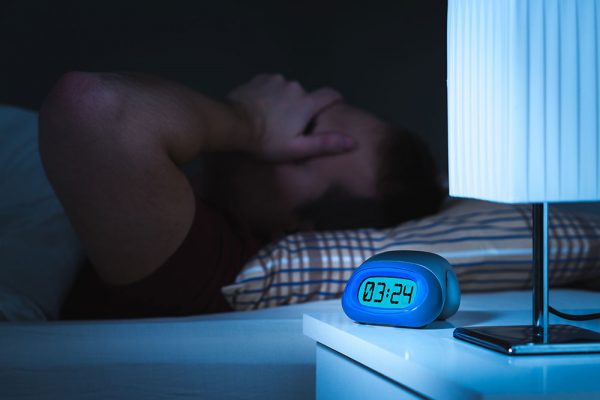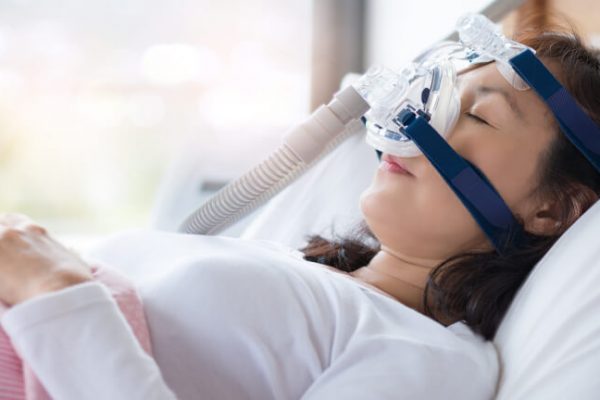Sleep Apnea and Your Weight: How They’re Connected
Sleep apnea is a common sleep disorder characterized by interrupted breathing during sleep. It can cause restless nights, fatigue, and other serious health problems. One of the factors that can increase your risk of developing sleep apnea is being overweight or obese.
Our Fort Worth Sleep Dentist, Dr. Sheila Birth, offers advice and treatments to improve both conditions. Learn about the relationship between sleep apnea and weight and how losing weight can help.


The Cycle of Sleep Apnea Symptoms and Weight Gain
Obesity increases the risk of developing obstructive sleep apnea for many reasons. Excess weight can cause the tissues in the back of the throat to become bulky and collapse more easily, blocking the airway during sleep. Additionally, fat deposits in the neck can also put pressure on the airway and obstruct breathing, worsening sleep apnea symptoms.
Sleep apnea can in turn cause weight gain. The extra weight can exacerbate sleep apnea symptoms, leading to further weight gain and a cycle of worsening symptoms.
Do CPAP Masks Contribute to Weight Gain?
The use of Continuous Positive Airway Pressure (CPAP) masks is a common first-line treatment for sleep apnea. Despite its efficacy, many patients struggle to use the device consistently due to discomfort or loud noise while sleeping. This lack of sleep due to non-compliance can result in weight gain and worsening sleep apnea symptoms. To combat this issue, Dr. Birth often recommends alternative sleep apnea treatments such as oral appliance therapy and weight loss.


Weight Loss Can Improve Sleep Apnea Symptoms
Losing weight can help reduce the severity of sleep apnea and improve symptoms. By losing weight, you can reduce the amount of fat in the neck and throat, making it easier to breathe. In some cases, weight loss may even eliminate sleep apnea symptoms altogether.
However, it’s important to keep in mind that weight loss is not a cure-all solution for sleep apnea. In some cases, other underlying medical conditions may be contributing to sleep apnea symptoms. It’s important to work with your sleep dentist and primary care provider to determine the best course of treatment for your individual needs.
Tips for Losing Weight to Improve Sleep Apnea
- Eat a healthy and balanced diet: Focus on eating plenty of fruits, vegetables, and lean protein to fuel your body and support weight loss. Avoid processed foods and high-fat, high-sugar foods. We recommend the Mediterranean diet.
- Incorporate physical activity into your daily routine: Aim for at least 30 minutes of moderate-intensity exercise most days of the week. Find fun ways to exercise to make this time an enjoyable and motivated one.
- Avoid alcohol and caffeine: Both alcoholic drinks and caffeinated drinks can disrupt sleep and worsen sleep apnea symptoms.
- Get plenty of restful sleep: Aim for seven to nine hours of sleep each night, and avoid using electronic devices before bedtime.
- Reduce Stress: Keep calm through activities like yoga, meditation, and other mindfulness activities.

Frequently Asked Questions
Can losing weight completely cure sleep apnea?
Does sleep apnea only affect overweight people?
How much weight do I need to lose to control my sleep apnea?
Is it harder to lose weight with sleep apnea?
Dr. Birth Helps You Lose Weight For Better Sleep, Learn More
At Birth and Fletcher Orthodontics, we understand the struggle patients face due to the cycle of sleep apnea and weight gain. Dr. Birth and our team will work with you to help ensure you get the sleep you need with custom treatments including oral appliances and CPAP alternatives. Once you’re sleeping better, you can begin to break the cycle of OSA and weight gain and start living the life you want.
Learn more about the relationship between sleep apnea and weight gain. Contact our Fort Worth office by dialing (817) 502-9103. You can also fill out the contact form below and we’ll get back to you as soon as we can. We serve patients from Fort Worth and surrounding areas such as River Oaks, Arlington, & Westover Hills, TX.
